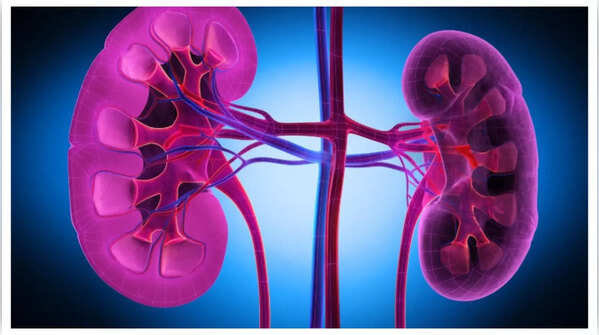

2/6
Narrowing and Hardening of Kidney Blood Vessels
High blood pressure puts extra force on the walls of your blood vessels. Over time, this pressure can cause the arteries leading to your kidneys to narrow, harden, or become stiff. This condition is called renal artery stenosis. When these blood vessels narrow, less blood flows into the kidneys. Without enough blood and oxygen, the kidneys cannot work properly.
This damage to kidney arteries reduces their ability to filter waste from the blood. It also makes the kidneys less able to regulate important body functions like fluid balance and blood pressure itself. This creates a harmful cycle where damaged kidneys lead to higher blood pressure, which causes more damage.

3/6
Damage to the Kidney’s Filtering Units
Inside each kidney are tiny filtering units called nephrons. These nephrons clean the blood by removing waste, extra fluids, and toxins. High blood pressure can damage the delicate blood vessels inside the nephrons, reducing their ability to filter blood effectively.
When nephrons are damaged, waste and fluids build up in the body, causing swelling and other health problems. This damage also lowers the glomerular filtration rate (GFR), a key measure of kidney function. A reduced GFR means the kidneys are not filtering blood well, which can lead to chronic kidney disease (CKD).

4/6
Protein Leakage in Urine
Healthy kidneys keep important proteins in the blood while filtering out waste. High blood pressure can harm the filtering structures called glomeruli, allowing protein to leak into the urine—a condition known as proteinuria.
Proteinuria is a warning sign that kidneys are damaged. If left untreated, it can worsen kidney function and speed up the progression of kidney disease. Detecting protein in urine early can help doctors manage blood pressure and protect the kidneys from further harm.

5/6
Chronic Kidney Disease (CKD)
Prolonged high blood pressure is one of the leading causes of chronic kidney disease. CKD is a long-term condition where the kidneys gradually lose their ability to work properly. As kidney damage worsens, waste builds up in the body, leading to serious health issues and sometimes kidney failure.
High blood pressure is the second most common cause of kidney failure after diabetes. Many people with CKD do not notice symptoms early on, making regular blood pressure checks and kidney tests important for early detection and treatment.

6/6
Chronic cycle
When kidneys are damaged by high blood pressure, they cannot remove extra salt and water efficiently. This causes fluid to build up in the body, which raises blood pressure even more. The damaged kidneys may also release hormones like renin that tighten blood vessels and increase blood pressure.
This creates a vicious cycle where high blood pressure damages the kidneys, and damaged kidneys cause blood pressure to rise further. Without treatment, this cycle can lead to worsening kidney function, heart problems, and other serious health conditions.
Follow Us On Social Media

 7 hours ago
44
7 hours ago
44




























 English (US)
English (US)